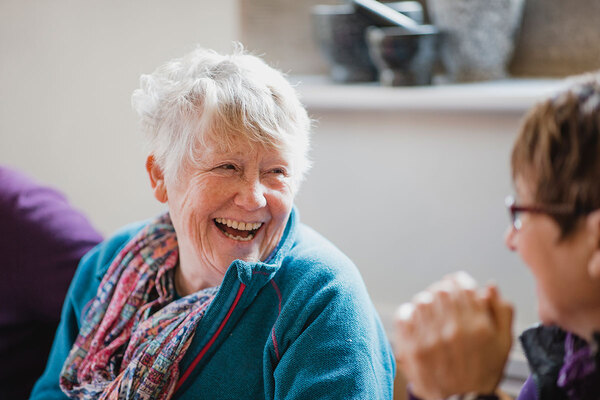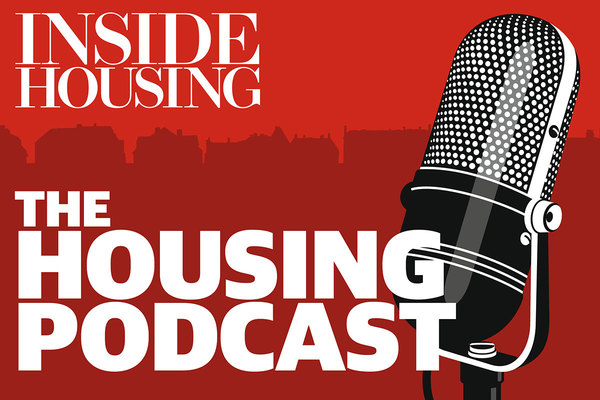You are viewing 1 of your 1 free articles

Social landlords must act on the mental health pandemic
Years of austerity and social care budget cuts have led to a depletion of mental health services. The coronavirus pandemic has exacerbated this to the extent that is is now a national crisis, writes Charlie Norman
Like so many people, I am spending much of my time at the moment worrying about, talking about and acting on the need for better mental well-being – whether this is about my own loved ones, people within our business or within the communities we serve.
My colleague Tia recently described the mental health crisis as another pandemic – one that is building pressure on everyone and it is time to act.
Personally, I feel saddened and angered that years of austerity and unnecessary cuts to social care budgets have led to a depletion of mental health services and sadly an increase in serious mental health and safeguarding issues.
The coronavirus pandemic has exacerbated things to the extent that it is now a national crisis for those who were already struggling, and with many more people now experiencing challenges with their mental well-being for the first time.
As an optimist, I would like to think that we will learn from the impact of COVID – the support and love we have shown each other and the giant spotlight shone on inequalities in the UK and across the globe. But we have so much to do when it comes to good health and mental well-being, especially if we want to commit now to being good ancestors for generations to come.
At times this year I have been involved in discussions with fellow human beings about this more than any other topic – whether that’s about workplace well-being, caring for our carers, resilience building, safeguarding issues within some of our schemes or the fantastic partnership work on this in Greater Manchester.
Within Mosscare St Vincent’s (MSV), my colleagues have been very focused on supporting each other and, like many organisations, finding new and creative ways to talk about mental health in a safe environment. Small gestures that have gone a long way in helping people include our ‘Kindness Days’ – days out of the business to focus on mental well-being – our mental health first aider network and our ambassadors of hope programme.
Our engagement group has had a brilliant idea for when we emerge from lockdown and can all meet up safely: the ‘Big MSV Kindness Walk’ to get together and raise funds. It would be a relay of sorts for everyone to join in along the way as much or as little as they would like, bringing along the kids and dogs we have all got to know on screen in the past year.
Hope is a word I have heard in several forums lately – especially when talking to young people about what kind of society they want to see emerging from living with coronavirus.
A loss of hope is crippling many people who had so many ambitions and aspirations before opportunities were cruelly whipped away, and we must use our platforms as employers, community anchors and social investors to build hope and ambition once again.
We are not experts in mental health, but we can work closely in partnership with those people who are, as well as the wider community and voluntary sector (where would we be without them?). Together we can do real things to promote good well-being, focusing on preventative measures to ensure mental health does not end up in clinical settings – or when they do, that there is a quick transition and pathway out of this.
“As well as being well placed to support the wider determinants of health, it is absolutely the case that residents living in sub-standard housing are disproportionately at greater risk of poor health and low mental well-being”
In Greater Manchester (GM), as part of our new tripartite agreement between the 25 housing providers, the combined authority and the health and social care partnership (plus the two mental health trusts), we are accelerating our work on mental well-being, putting it front and centre of our health and housing strategy.
Earlier this year, we held a brilliant ‘Time to Talk, Time to Act’ session to bring this to life, following lots of hard work and debate last year. Key to this work is the link to broader strategies, such as the new green industrial revolution and creation of new skilled work, tackling deeply rooted inequalities, providing and maintaining quality healthy homes and keeping good health at home and within the community.
We now have a GM-wide mental health and housing strategy, and have held a ‘Big Mental Well-being Conversation’ across the region, with really interesting results especially around how demographics and security of tenure impact on this.
We have also developed new approaches including a model for mental health professionals embedded within housing associations (jointly resourced) and taking a leap of faith with new projects such as a brilliant hospital discharge project-led by partners including Bolton at Home and ForHousing. And we are broadening our horizons by linking in with those key CVS partners and other parts of the system focused on positive determinants of health eg GM Moving – using our green spaces for health and promoting exercise for well-being.
As well as being well placed to support the wider determinants of health, it is absolutely the case that residents living in sub-standard housing are disproportionately at greater risk of poor health and low mental well-being. This affects people of every age, and we are all concerned about the disproportionate impact of COVID on young people and their future prospects, on BAME communities, people who live alone, families who are struggling, people without social networks and support and of course older people.
On a very positive note, I heard the stories of two people who moved into our new extra-care scheme whose mental well-being has been transformed by having a lovely new home that is suitable for their needs and a compassionate and caring support system from a brilliant team onsite (and lovely food).
Here are their stories.
One resident previously lived in a privately-owned property, which he described as always cold even in the summer, with several ongoing repair problems including damp. As an asthmatic, he was always feeling poorly no matter how much he tried to shake it off – he would constantly have electric heaters around his flat, which he found very expensive to run.
After nine years it started to take its toll on him and at times he suffered with depression and felt like there was no sign of things getting better for him. He was constantly stressed and anxious about the pressure of living on his own without any support in an unsuitable flat. He described feeling as if the world had been lifted from his shoulders now he is living in an extra-care scheme where he is supported with day-to-day living and has feelings of relief and excitement at living in such an amazing place.
“It’s feedback like this from happy residents that should drive us all to do what we do: providing high-quality homes that promote and support good health and well-being”
Two years ago, another couple who recently moved into the scheme found themselves homeless due to difficult financial circumstances. Only through the support from their friends did they manage to stay here and there on a sofa or in a box room. During this period, the lady was diagnosed with cancer and had to go through intensive radiotherapy and chemotherapy treatment. This put a lot of strain on the couple and there were days when they didn’t know how they could carry on – this took a huge toll on their mental well-being.
They have been together for more than 20 years and said they have never been closer than where they are today. Their previous housing situation caused them to feel as if they didn’t fit into what they felt was ‘normal’ life. They continued to live with friends but always felt they were in the way and desperately wanted a place they could call their own.
Being offered a home at the scheme was a moment that changed everything and brought on feelings of elation and relief. They now proudly describe their home as loving, comfortable and beautiful and have reported a huge improvement in their mental well-being – this is their spiritual home and the place they are meant to be.
It’s feedback like this from happy residents that should drive us all to do what we do: providing high-quality homes that promote and support good health and well-being, and really playing our part as employers and community organisations. Everyone deserves a healthy home and place to live as well as a sense of wellbeing and hope for the future.
Charlie Norman, chief executive, Mosscare St Vincent’s










